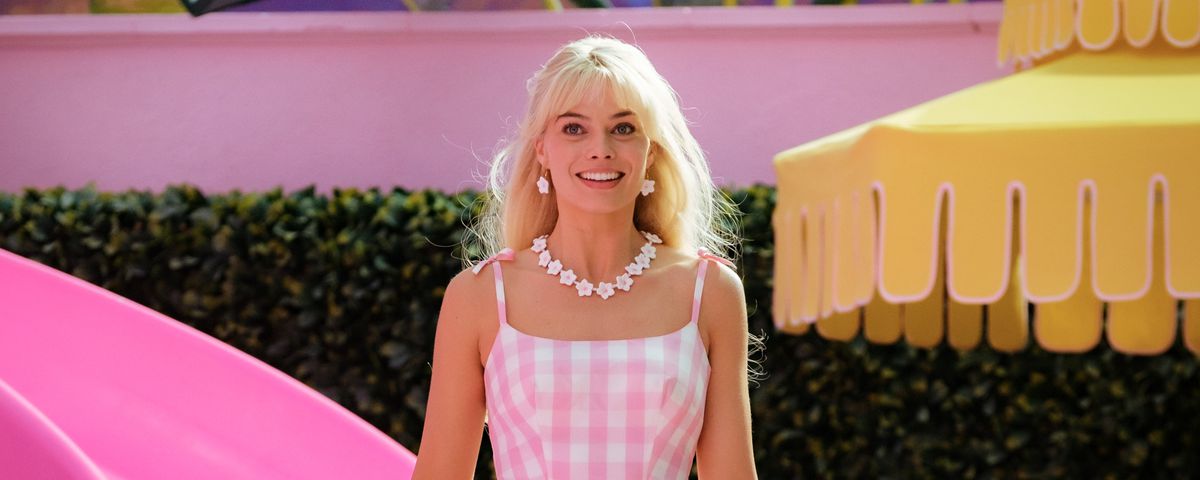About a year ago now I wrote an article discussing the display of feminism in the public eye through movies. Barbie was released last July, and it met every expectation I had in mind. It was able to demonstrate a clear understanding of what it means to illustrate feminism without the painful addition of masculine characterization. But it is so painful to see men miss what makes Barbie such a clean example of how feminism should be used in film.
Barbie’s director Greta Gerwig intended Barbie to be a movie that was big-hearted even though it is poking fun at everyone. While a very satirical movie by nature, Barbie is not afraid to snap into a realistic setting to convey its messages, which is something Gerwig does a lot.
Gerwig’s previous films include Little Women, Ladybird, and Nights and Weekends. Most of her works tend to rely a lot on realistic settings and real-life imagery. Ladybird is a story of tackling graduation as a young adult girl, and it is not too far off from Barbie in the sense that it is able to joke around while still pushing a general message to its audience. It was clear before the film’s release what we could expect, but it still surpassed expectations.
On its release, male public figures began slamming Barbie, claiming the movie was “male-hating” and “anti-man”. It’s surprising how much hatred could be brought by simply bringing the female perspective to light. Too often women are just one-dimensional plot devices that exist only to further the male protagonist’s story, it’s that normalized. The “Kens” in Barbie simply mirror the way women have been historically portrayed in the media. Over-sexualized and underdeveloped. People who miss that point are unknowingly perpetuating that normalcy.
From the male perspective, it’s refreshing to see toxic masculinity and the patriarchy portrayed as harmful for both men and women. Ken’s emotions rely entirely on Barbie’s relationship with him, and when he comes back to Barbie Land to change it into how it is in the real world, he ends up turning all the Kens against each other. Ken isn’t truly happy until he understands that he doesn’t need competition and relationships to be Ken, he is enough just as he is.
It’s important for male viewers to understand that no one wins under the patriarchy. Men and Women.
One of the first scenes that stood out to me was Barbie’s realization on a park bench, a few hours into the real world. She had been through a lot, even a few seconds into the real world. As she sits, she closes her eyes and sees a little girl connecting with her mom. Barbie cries for the first time. She opens her eyes and looks around and sees a park, filled with beautiful, funny, sad, and mundane moments of everyday life. A young couple with a baby, kids playing tag, a couple arguing, some friends laughing, someone reading a book. She looks up to the trees listening to the birdsong, and as she sits, she realizes how much the pains of life are as beautiful as the joyful parts. She realizes as humans we get to experience it all.
The best thing about Barbie is how much it tells us gently and explicitly. How women are emotional and logical, how impossible it is to live sometimes, how ridiculous the standards are, how they are beautiful and smart, yet also how if all of these things are represented by a doll, then how useless it even is trying to do anything. One of my favorite moments was America Ferrera’s speeches near the end of the movie, and how, when given the choice between Barbie Land and the real world, Barbie chose to become a human.
Because, living in our flawed, patriarchal, toxic world was better than something only achievable in a movie.
While there are a lot of aspects of Barbie that cannot be related to from the male perspective, it is entirely possible to respect and understand what Barbie means to feminism and film as a whole. It’s a film that I believe will go down in history, and if you haven’t seen it yet, I highly encourage you to see it. This film is for every kind of person to see. Kens and Barbies alike.


Reymond Barats • Feb 8, 2024 at 2:14 pm
Love this, and it’s so true. I haven’t personally watched the movie yet, but this seems like a beautiful representation and analogy and it makes so much sense. The hierarchies, the sexism, the truth that Phillips highlights in how toxic masculinity is damaging to everyone.